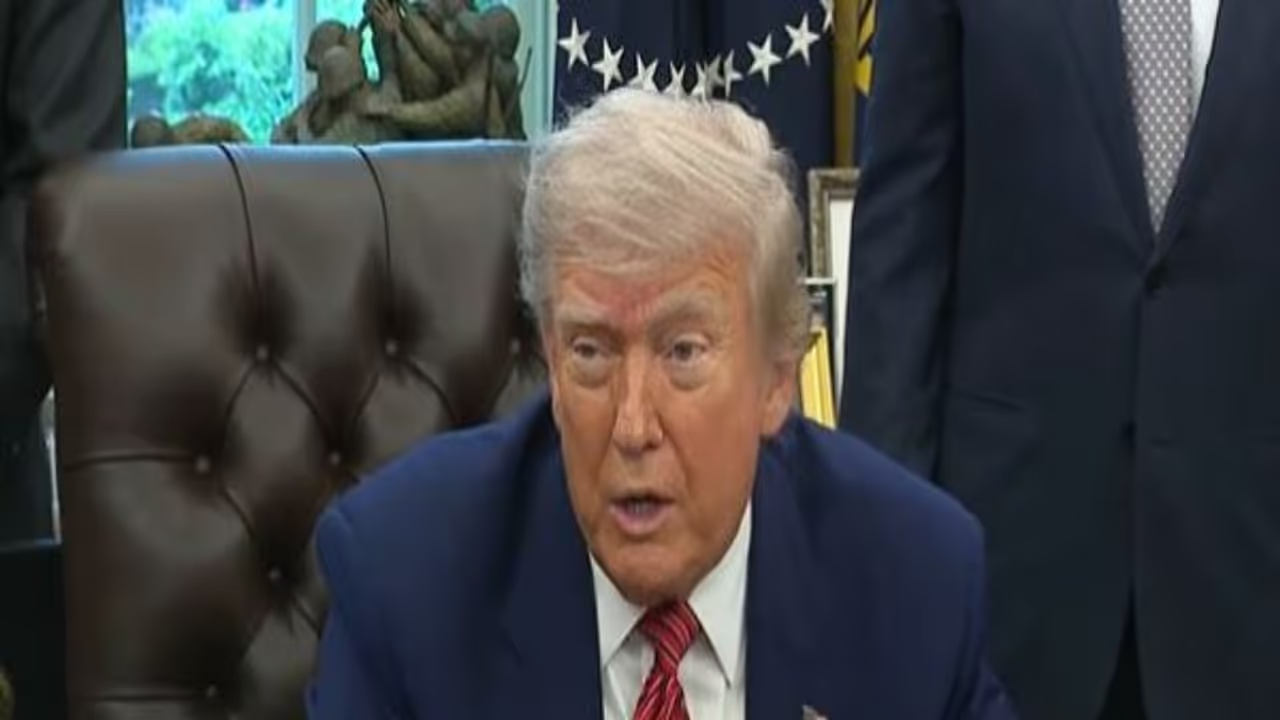A US federal court blocked President Trump’s use of emergency powers to impose broad tariffs, ruling he exceeded his authority under IEEPA. The decision challenges his trade strategy and limits tariffs without congressional approval.
A US federal court on Wednesday halted President Donald Trump’s attempt to impose broad tariffs on imports using emergency powers, delivering a significant setback to his key economic policies that have unsettled global markets, strained trade relationships, and sparked concerns about inflation and an economic downturn.

Court challenges Trump’s use of emergency powers
On Wednesday, the US Court of International Trade in New York ruled that President Trump exceeded his authority under the 1977 International Emergency Economic Powers Act (IEEPA). The decision followed several lawsuits claiming that the president cannot impose wide-ranging tariffs using emergency powers without approval from Congress.
This ruling restricts Trump’s ability to unilaterally determine tariff rates and threatens a key component of his administration’s strategy, which relies on tariffs as a bargaining tool in international trade negotiations.
A blow to Trump’s economic strategy
Trump defended the tariffs as a response to what he described as a national emergency caused by persistent and large US trade deficits. He claimed the tariffs would encourage manufacturers to bring jobs back to America and generate revenue to help reduce the federal deficit. The administration imposed tariffs on multiple countries, including Canada, China, and Mexico, citing issues like illegal immigration and the influx of synthetic opioids.
However, the three-judge panel rejected the legal grounds for these actions, stating, “The worldwide and retaliatory tariff orders exceed any authority granted to the president by IEEPA to regulate importation by means of tariffs.”
Judicial panel crosses party lines
The ruling was delivered by a three-judge panel representing a range of political appointments: Timothy Reif (appointed by Trump), Jane Restani (appointed by Ronald Reagan), and Gary Katzman (appointed by Barack Obama). Their unanimous decision reflects widespread judicial doubt about Trump’s expansive interpretation of executive trade powers.
White House responds, vows to fight back
White House spokesperson Kush Desai defended the administration’s stance, describing trade deficits as a national emergency that has “decimated American communities, left our workers behind, and weakened our defence industrial base.” Desai highlighted that the court did not dispute the administration’s key facts and reaffirmed President Trump’s commitment to using “every lever of executive power” to tackle the issue and “restore American greatness”.
The administration has already filed a notice of appeal, with the case expected to eventually reach the Supreme Court for a final ruling. Meanwhile, the ruling restricts Trump’s ability to enforce tariffs under emergency powers.
Legal loopholes and uncertainties remain
Although the court blocked the president’s use of IEEPA to impose broad global tariffs, it noted that under Section 122 of the Trade Act of 1974, the president still has the authority to impose tariffs of up to 15% for 150 days on countries with which the US has significant trade deficits. It is still unclear whether the administration will halt existing tariffs or attempt to reintroduce them using other legal avenues.
Economic impact and lawsuits mount
Trump’s tariff policies have faced strong opposition from businesses, state governments, and economic experts. While the tariffs have done little to reduce the trade deficit, they have fuelled inflation concerns, disrupted global supply chains, and unsettled investor confidence. Despite these challenges, the US economy, the largest in the world, has remained relatively resilient.
The legal challenge was initiated by a group of small businesses, including VOS Selections, a wine importer whose owner warned that the tariffs threatened the survival of his company. In addition, a dozen states, led by Oregon, have joined the lawsuit.
Democrats and state leaders welcome ruling
Oregon Attorney General Dan Rayfield praised the court’s decision, saying, “This ruling reaffirms that our laws matter and that trade decisions can’t be made on the president’s whim.” Senator Ron Wyden, a senior Democrat on the Senate Finance Committee, criticised the tariffs for increasing prices on everyday items, disrupting supply chains, and placing burdens on both large and small American businesses.
The court’s ruling represents a major legal and political setback for President Trump, challenging the core of his trade policies. Although the White House has promised to appeal, the decision adds uncertainty to an already unstable global trade landscape and may force the administration to reconsider its heavy reliance on emergency powers for economic measures.


